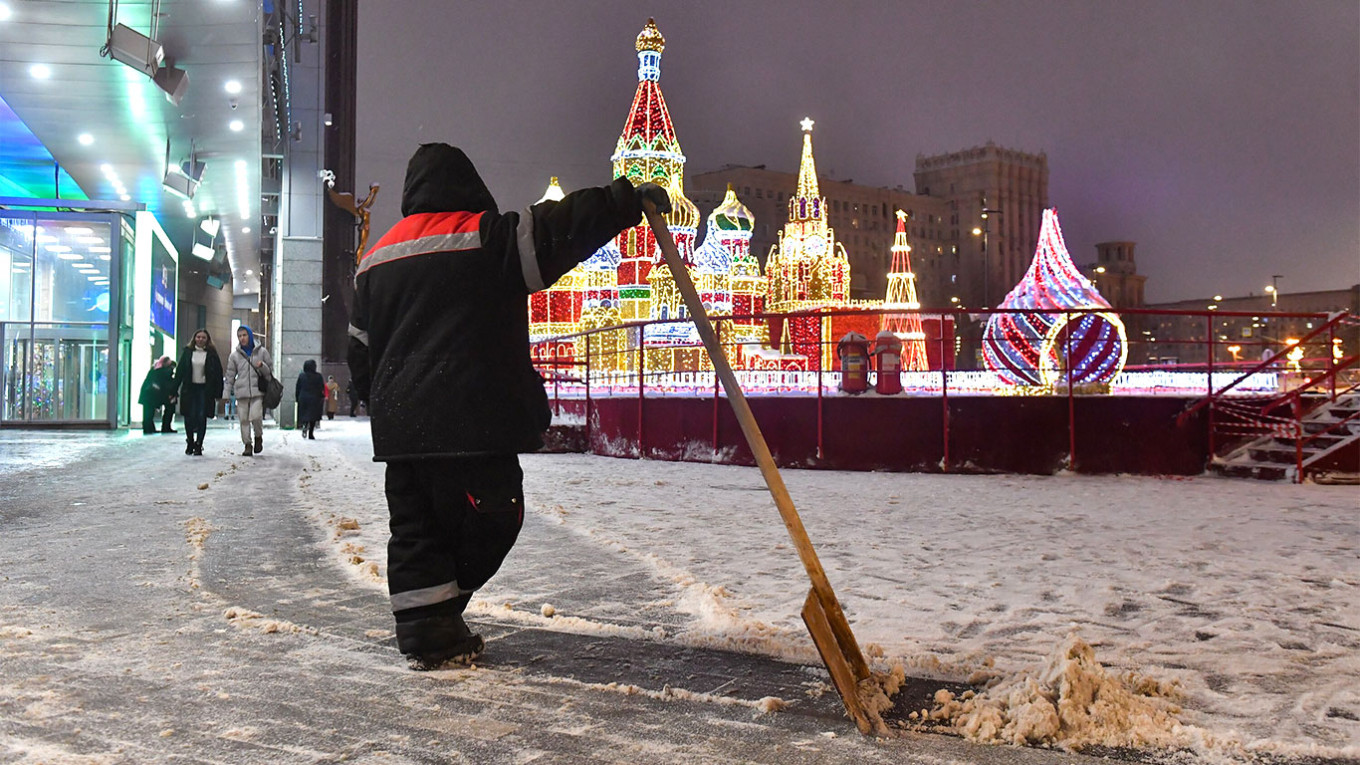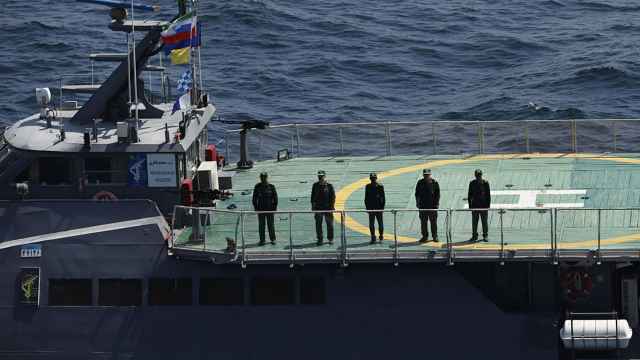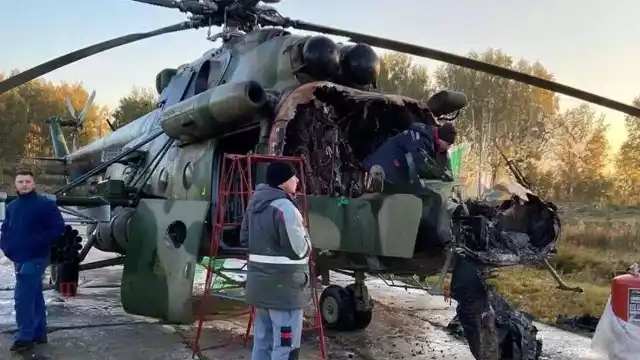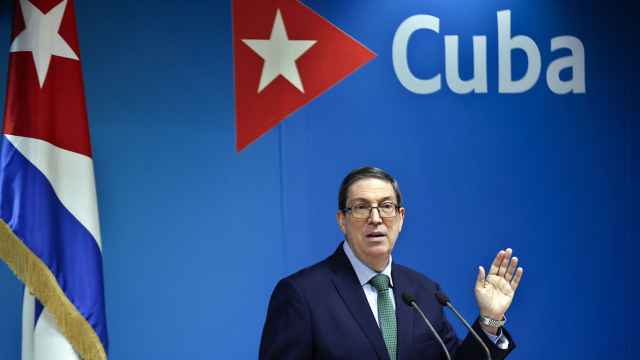MOSCOW — “Last year was the worst in every sense,” taxi driver Valeriani said when asked what he thought of life in the Russian capital since the Kremlin ordered tanks into Ukraine.
Valeriani, 40, a labor migrant born in the South Caucasus nation of Georgia, said he was forced to take the driving gig when his once-lucrative real estate business started hemorrhaging clients amid post-invasion economic upheaval.
“All the well-off Muscovites have left, those less well-off stayed behind,” he told The Moscow Times, requesting anonymity to protect his privacy.
“Everything suffered as a result, from restaurants to shops and all that’s in between.”
Record numbers of labor migrants have left Russia to return to their home countries in Central Asia and the South Caucasus — countries that traditionally send working-age men and women to Russia — as a result of the Ukraine war, economic recession and Western sanctions.
Although some chose to ride out the storm in Moscow.
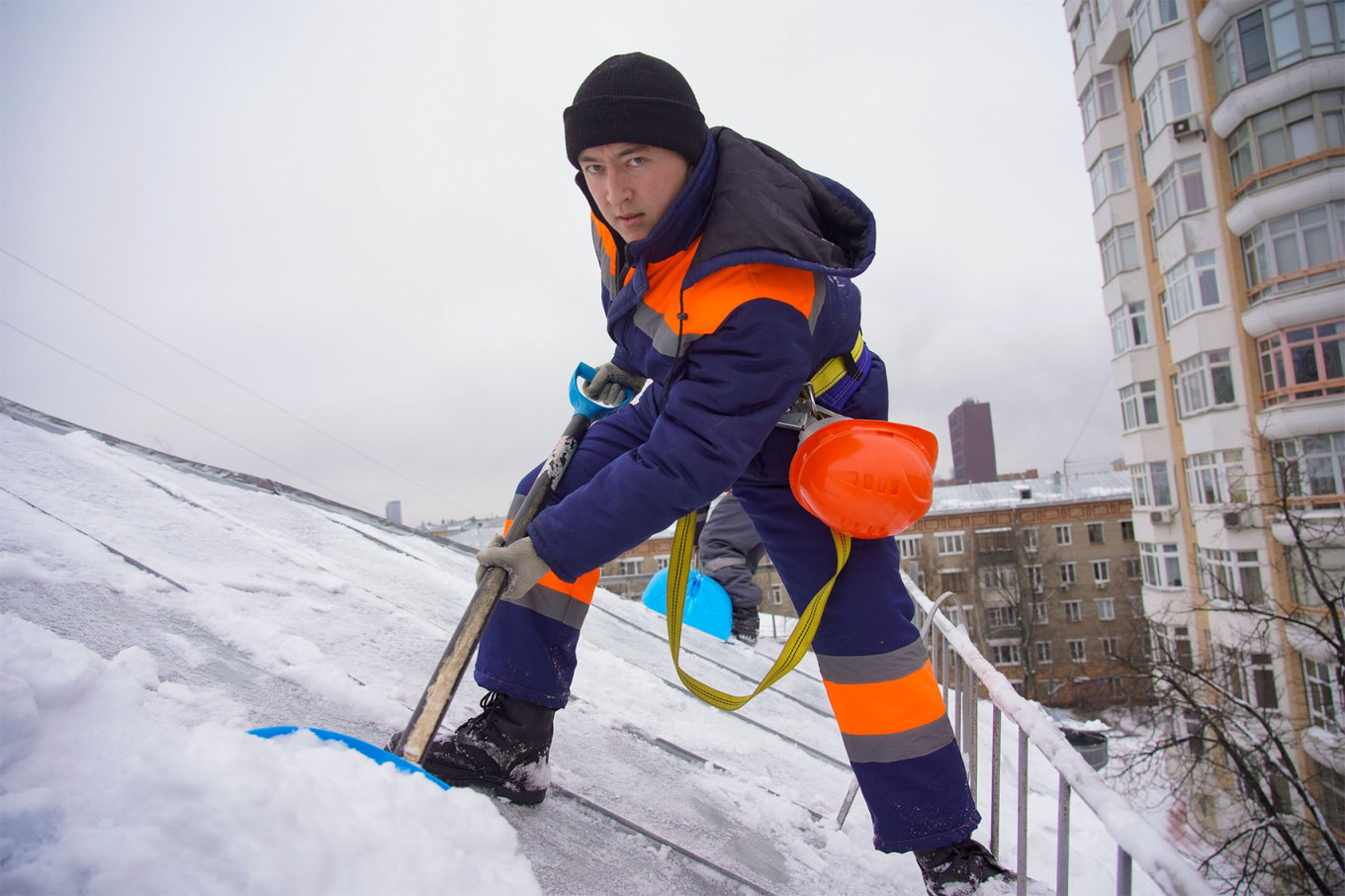
Despite its international isolation, the Russian capital remains a bustling metropolis where migrant workers are still in demand.
Cholpon Beishembieva from Kyrgyzstan told The Moscow Times she was forced to take a job at a Moscow grocery store last year after her previous microfinance job, which relied on Central Asian clients, saw a slump in business.
“Half my team was immediately laid off in the spring,” said Beishembieva, 49, citing a group chat from her previous job.
“One-third of them [former colleagues] returned to Kyrgyzstan,” she said.
Independent demographers have forecast that Russia will see its first decline in migration this year — although they caution about placing too much trust in official figures.
Beishembieva says rising prices and stagnant wages in Russia mean she is considering returning to Bishkek, the capital of ex-Soviet Kyrgyzstan, for the first time in 12 years.
The Kyrgyz economy, like that of other Central Asian and South Caucasus countries, is highly dependent on remittances sent back from labor migrants working in Russia.
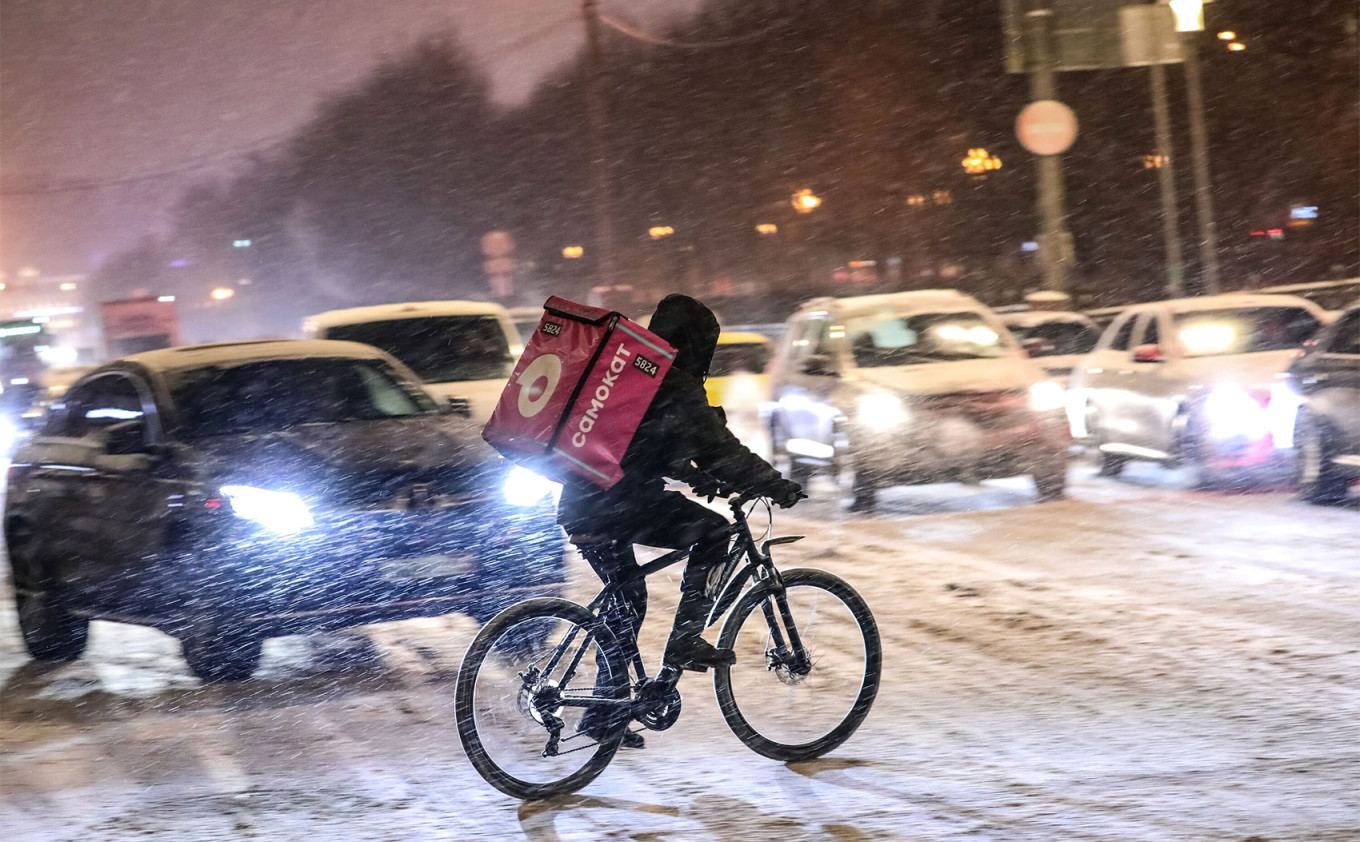
“But relatives back home say prices have also spiked due to Russian migrants while salaries are still too low,” Beishembieva told The Moscow Times.
Street sweeper Farukh agreed, saying his menial job in Moscow pays more than the physics professorship he previously held at a university in his native Uzbekistan.
“It’s still better to work here,” Farukh, 45, told The Moscow Times as Muscovites passed by on their morning commute.
Asked if he had considered moving back to Georgia, taxi driver Valeriani said uprooting his wife and children would be too costly after over a decade living in Moscow.
The main reason more migrants have not left Russia is the strength of the ruble as a result of the currency controls imposed by the Central Bank in March, according to lawyer Dilshod Tuichiyev, who specializes in migration cases.
The controls have kept the ruble far stronger than it would otherwise have been following Western sanctions, meaning ruble-denominated salaries go a lot further in foreign countries.
“If the dollar cost the same as when the war began, there probably wouldn’t be any migrants in Russia,” Tuichiyev told The Moscow Times in a phone interview.
“So, by and large, we can say that migrants have been able to earn.”

Some labor migrants in Russia have even volunteered to fight in Ukraine, likely incentivized by the high salaries offered to soldiers — despite some neighboring countries, including Uzbekistan and Kyrgyzstan, publicly warning their citizens that joining the Russian Armed Forces would make them liable to criminal prosecution at home.
The Kyrgyz authorities said last week they had arrested a Kyrgyz man for taking part in fighting in Ukraine.
Tuichiyev said labor migrants were not only being recruited into the Armed Forces, but also sought out for better-paid construction work in Ukrainian territories illegally annexed by Moscow last year.
“They get in touch with me in small numbers about whether to go or not,” Tuichiyev told The Moscow Times, adding that he tries to persuade them not to.
“We lose contact with those who agree.”
Valeriani, the Georgian taxi driver, shrugged off questions about whether he fears theoretical conscription into the Russian Armed Forces.
“I’ll go if they come for me,” he said.
The exodus of labor migrants since the start of war has caused problems for many businesses in the Russian capital — and was particularly noticeable during the historic snowfalls that hit Moscow in mid- and late December.
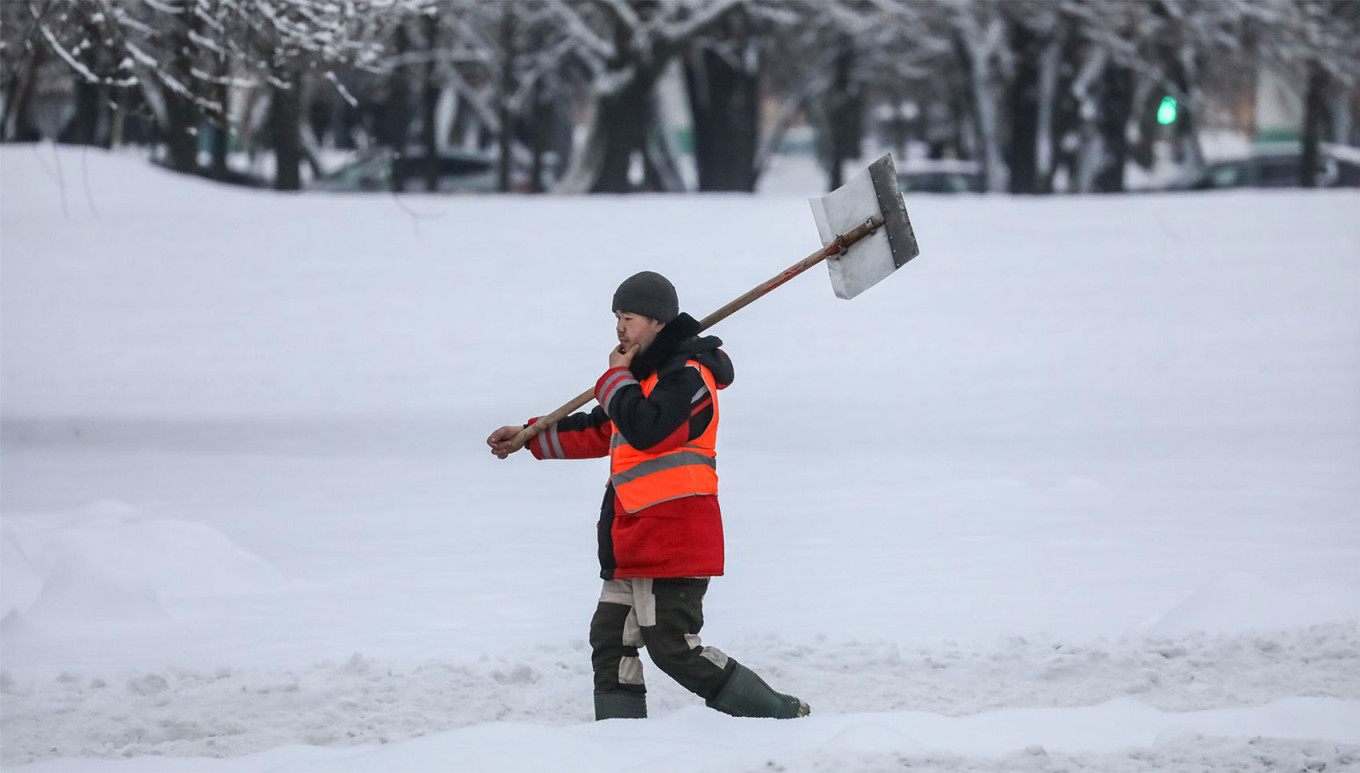
Farukh recalled how his understaffed team scrambled to keep the streets clear.
At the time, municipal authorities linked the labor shortage to the departure of unskilled workers back to their Central Asian homes.
“I think most of my colleagues got scared of being sent to war,” Farukh told The Moscow Times. “We really need people now.”
Shop worker Beishembieva said she has grown to oppose Russia’s military campaign in Ukraine despite initially supporting it.
She said a majority of her Russian customers and her multiethnic team at the grocery store are similarly opposed, with a small share intensely pro-war.
“There are innocent people dying. It doesn’t justify denazification or demilitarization,” she said, referring to the Kremlin’s official reasons for the invasion.
“I used to laugh at the saying ‘The world has gone crazy.’ Now I really do think the world has gone crazy.”
A Message from The Moscow Times:
Dear readers,
We are facing unprecedented challenges. Russia's Prosecutor General's Office has designated The Moscow Times as an "undesirable" organization, criminalizing our work and putting our staff at risk of prosecution. This follows our earlier unjust labeling as a "foreign agent."
These actions are direct attempts to silence independent journalism in Russia. The authorities claim our work "discredits the decisions of the Russian leadership." We see things differently: we strive to provide accurate, unbiased reporting on Russia.
We, the journalists of The Moscow Times, refuse to be silenced. But to continue our work, we need your help.
Your support, no matter how small, makes a world of difference. If you can, please support us monthly starting from just $2. It's quick to set up, and every contribution makes a significant impact.
By supporting The Moscow Times, you're defending open, independent journalism in the face of repression. Thank you for standing with us.
Remind me later.



